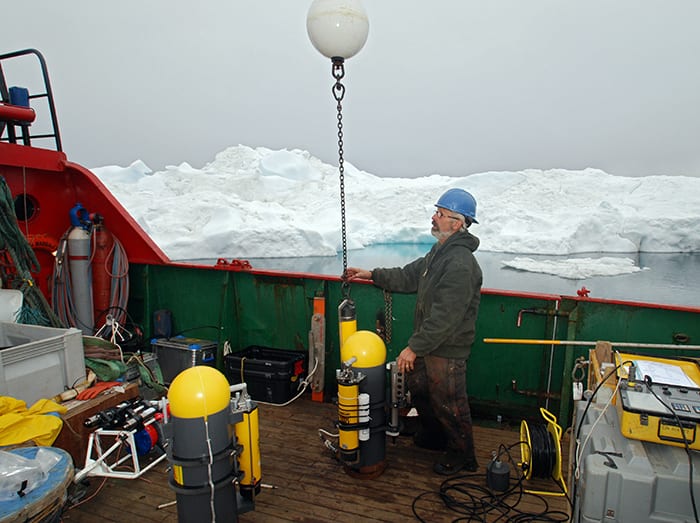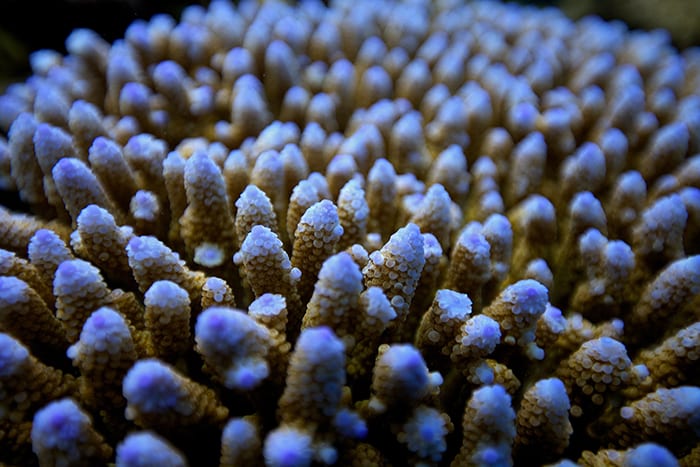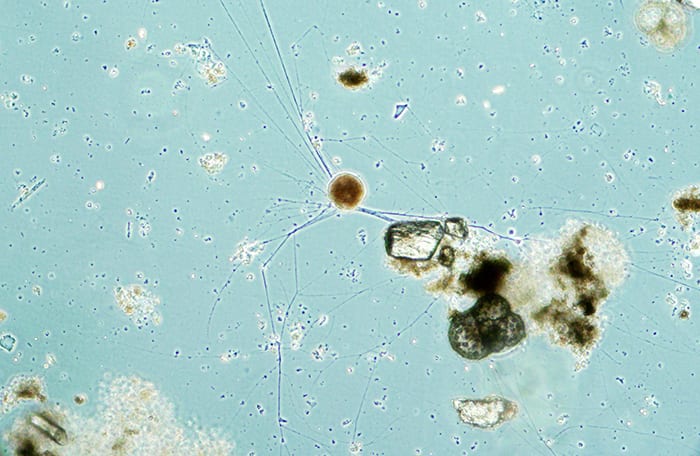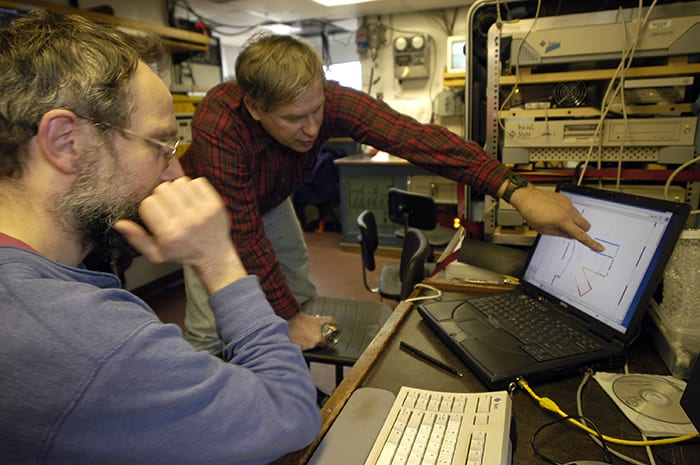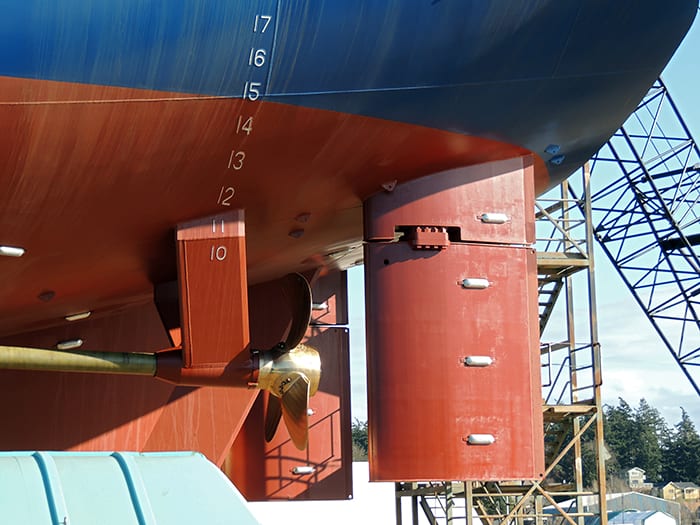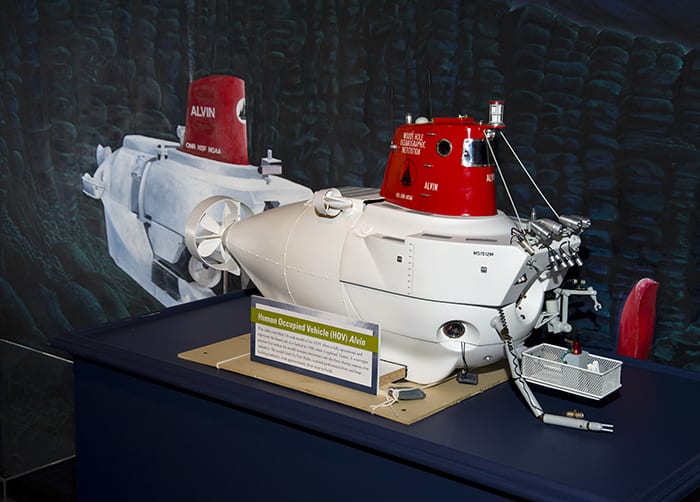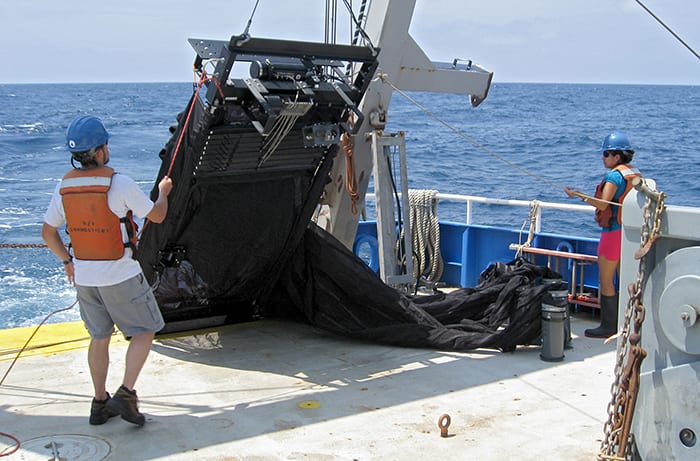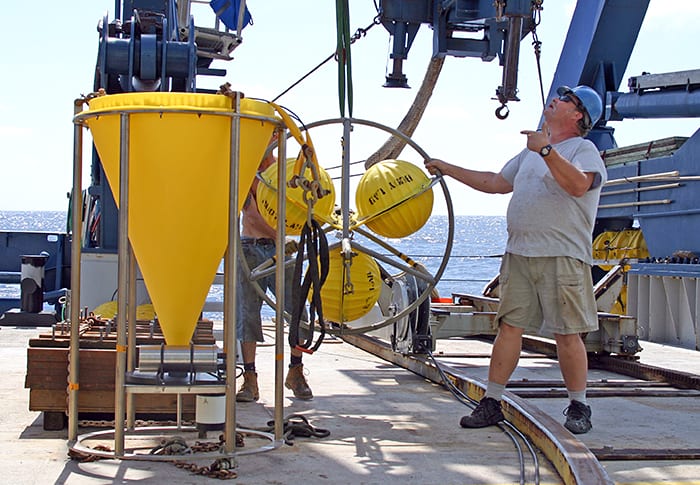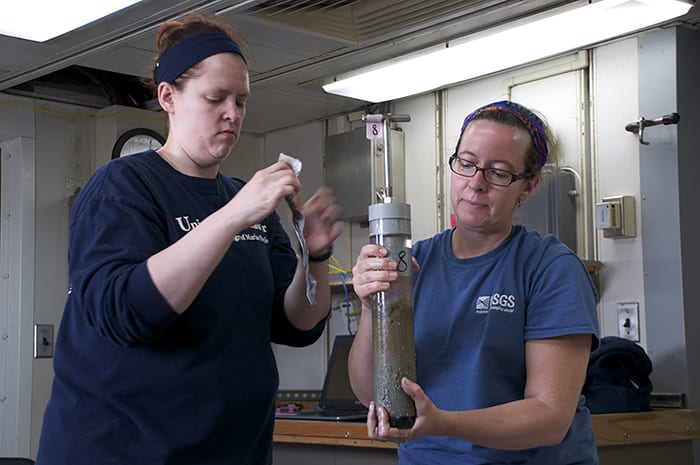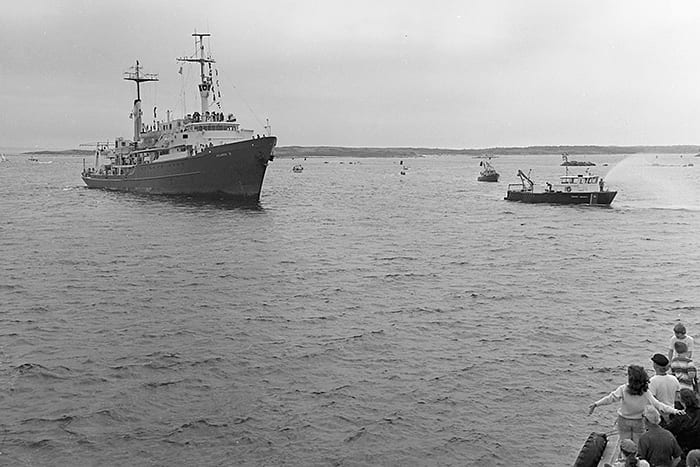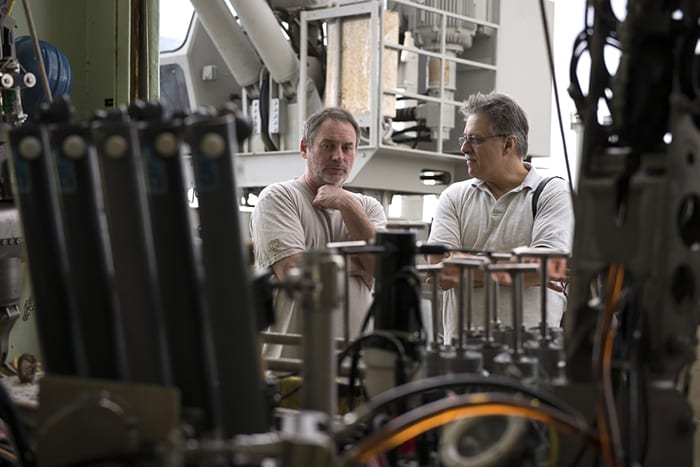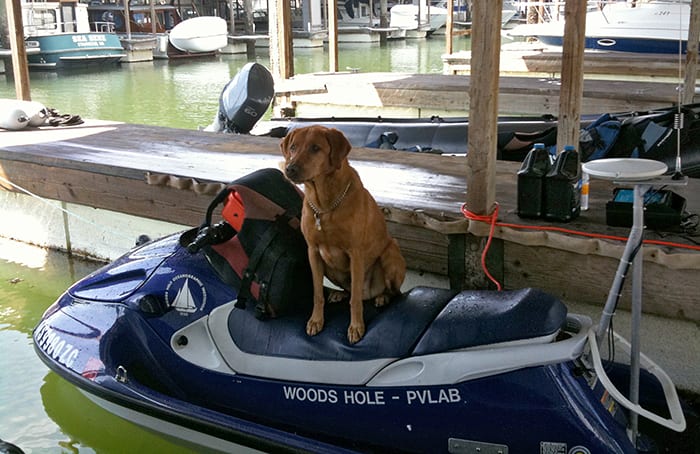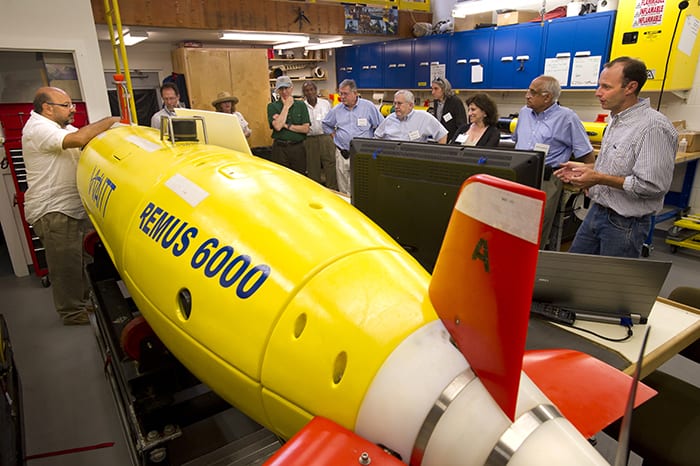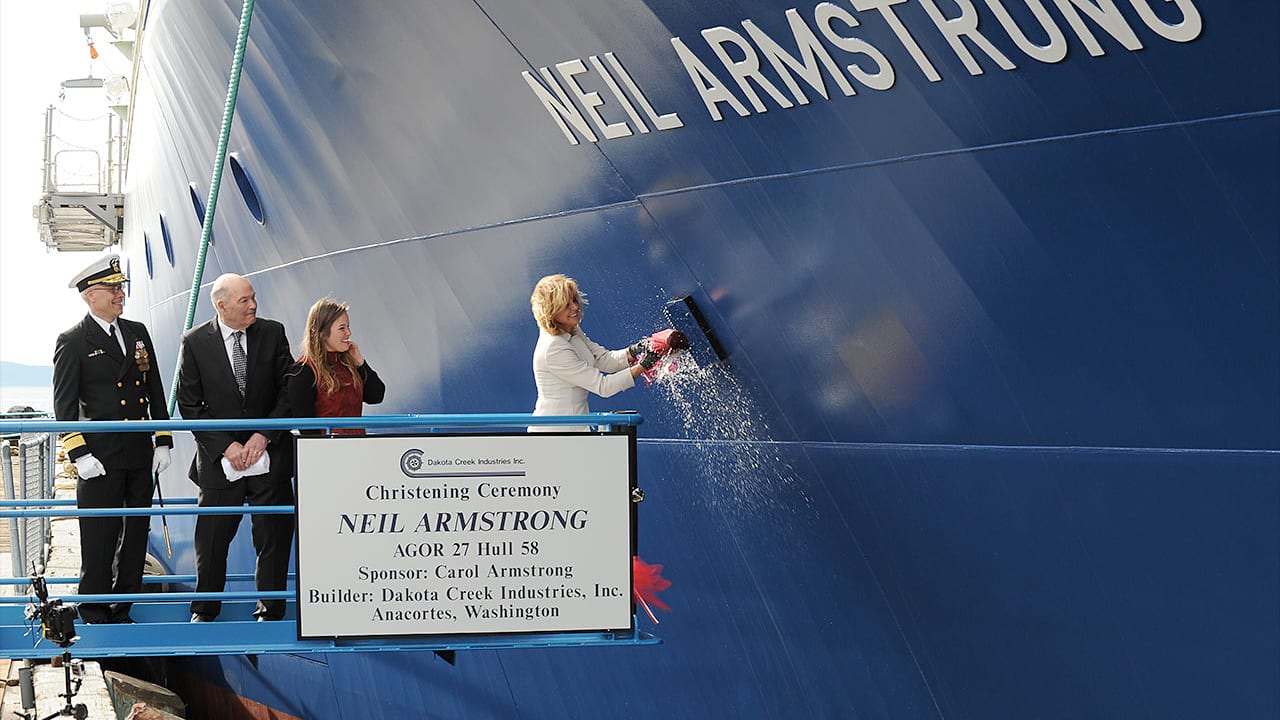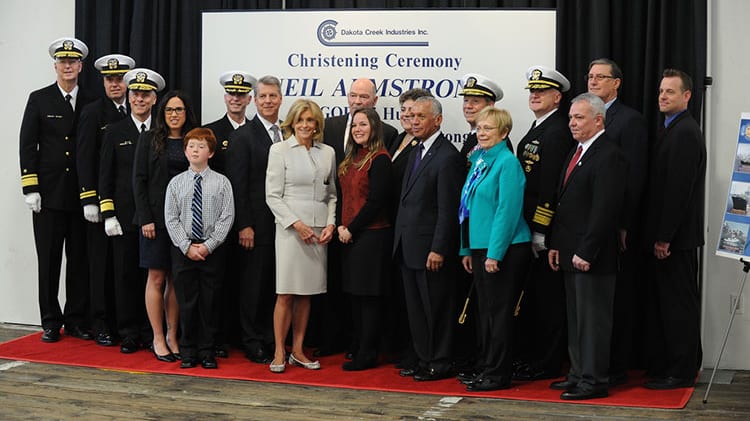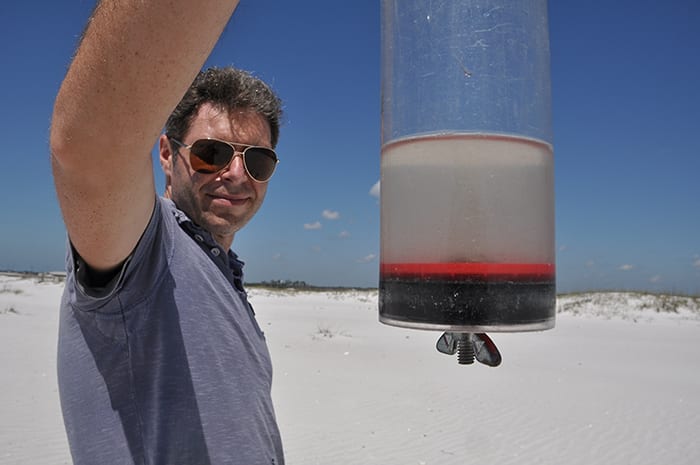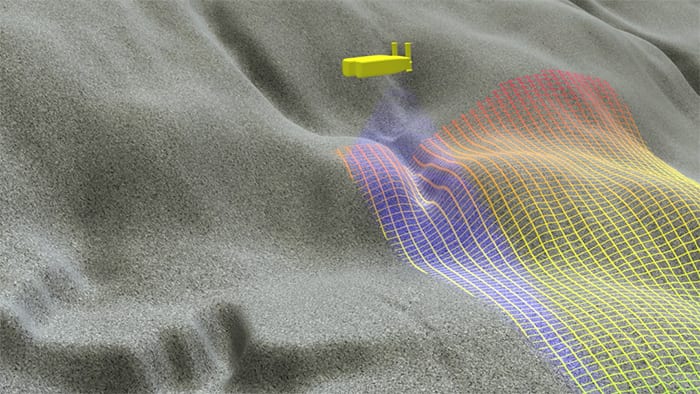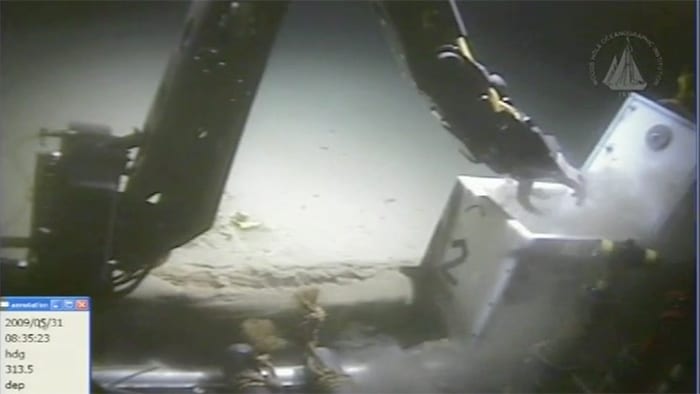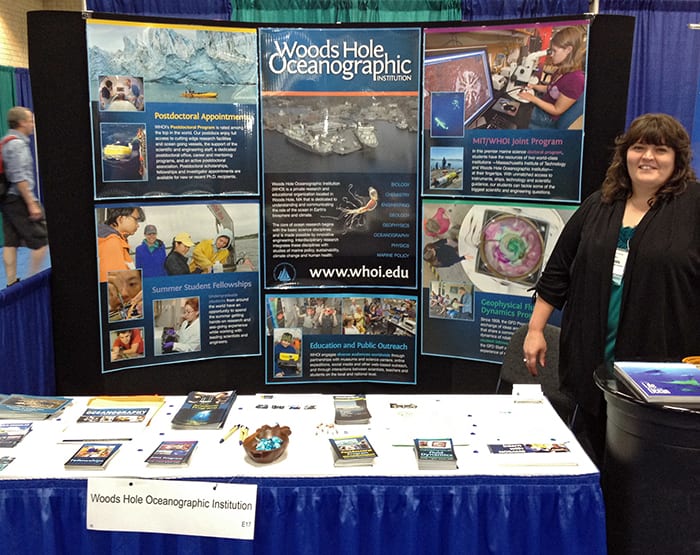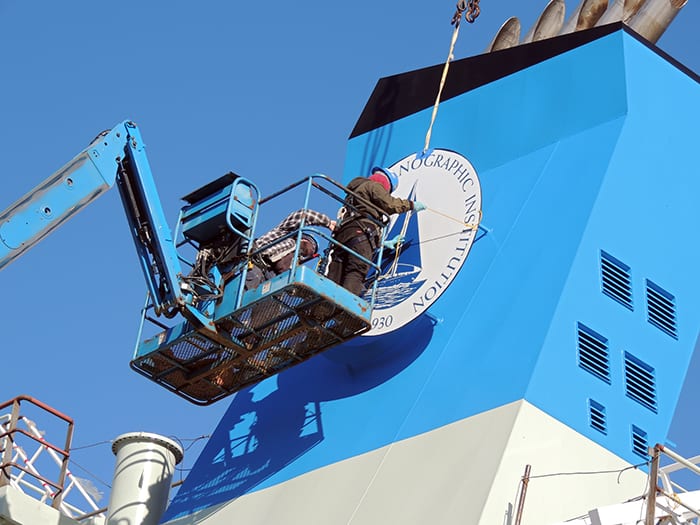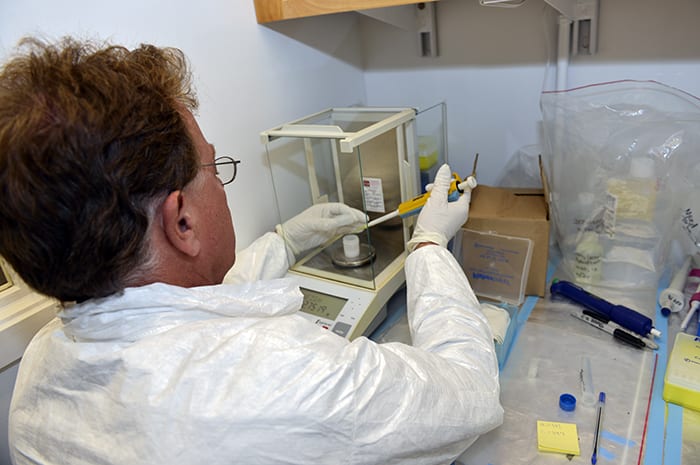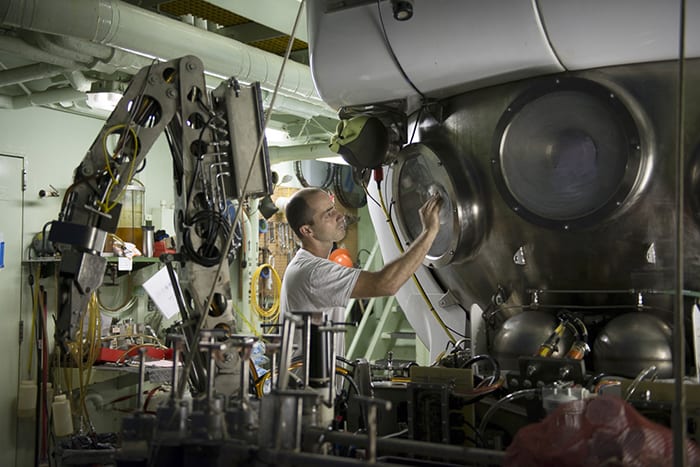Multimedia Items
Where Water Meets Ice
WHOI engineer Will Ostrom readies moorings for deployment in Sermilik Fjord, Greenland. The instrument packages measure temperature, salinity, and pressure in the fjord—data that scientist Fiamma Straneo is collecting to…
Read MoreFeatured Image: Teeming with Life
A close-up view of an Acropora coral reveals small individual coral polyps (the small, button-like dots), but a microscope is necessary to study the millions of inhabitants inside the coral—microbes.…
Read MoreTiny Disrupter
A plump foramiferan, or foram, sends out thread-like extensions to explore its surroundings and capture prey. Forams are single-celled organisms that live on or in the seafloor, where their activities…
Read MoreTracing the Flow
Research specialist Frank Bahr (left) and physical oceanographer Glen Gawarkiewicz analyze data on currents collected during a 2005 cruise off Cape Hatteras. Gawarkiewicz studies the currents along and across the…
Read MorePropelling Oceanography
It’s a giant step for oceanographers: The newly-christened research vessel Neil Armstrong—named for the first man to walk on the moon—nears the end of two years of construction north of Seattle. Armstrong,…
Read MoreLittle Alvin Model on Display
The deep-sea adventures of the 23-foot-long research submersible Alvin inspired Illinois diver and model enthusiast Tom Ryder to create a small-scale reproduction, now on display at the WHOI Ocean Science Exhibit…
Read MoreSophisticated Sampler
Scientists have long used nets to collect specimens. The MOCNESS is a souped-up version of its humble cousin, with multiple nets to sample at varying depths and sensors that transmit…
Read MoreCollecting Ocean Particles
Wayne Bailey, former bosun on R/V Atlantis, is shown preparing a sediment trap for deployment from the ship. Sediment traps collect small particles sinking or drifting in the water column over periods…
Read MoreMad for Mud
Jill Bourque (left) and Amanda Demopoulos, scientists at the U.S Geological Survey, extract sediments from a coring device pushed into the seafloor by the manipulator arms of the deep-sea sub…
Read MoreWelcome Home
Friends and family welcome the R/V Atlantis II back to Woods Hole in May 1977, upon completion of the longest voyage, by miles, ever made by a WHOI ship until…
Read MoreNew Ship, New Name
On March 29, 2014 the U.S. oceanographic research fleet’s newest ship, the R/V Neil Armstrong—shown here at an earlier stage of construction—was formally christened at a ceremony at the Dakota Creek…
Read MoreDeep Discussion
Veteran Alvin pilot Bob Waters (left) and Don Nuzzio of Analytical Instrument Systems discuss the equipment loaded onto the sub’s payload basket before the first dive of its recent Science…
Read MoreReady to Roll
Whit, a guide dog who works with oceanographer Britt Raubenheimer, keeps an eye on oceanographer Steve Elgar from the seat of a WHOI jet ski. Elgar took this photo from…
Read MoreA Capable Tool
The REMUS 6000, developed at WHOI to map the ocean floor, is probably best known for locating the wreckage of Air France Flight 447 in 2011, two years after it…
Read MoreR/V Neil Armstrong Christening
Carol Armstrong, ship’s sponsor for the Auxiliary General Oceanographic Research (AGOR) research vessel (R/V) Neil Armstrong (AGOR 27), breaks a bottle across the bow during a christening ceremony at Dakota Creek Industries,…
Read MoreR/V Neil Armstrong Christening
Moving an Island
WHOI Research Assistant Richard Sullivan holds one of 50 aeolian (wind-driven) sediment traps deployed on Santa Rosa Island in Florida to study the process by which a barrier island is over-topped and “drowns”…
Read MoreHROV Nereus
Look under a virtual ocean to see how researchers use Nereus. First, as a free-swimming, or autonomous underwater vehicle, Nereus surveys and maps broad areas of the seafloor. Then it…
Read MoreNereus in the Challenger Deep
HROV Nereus samples the Challenger Deep seafloor. Date: May 31, 2009 Depth: 10,006 meters (6.2 miles) Originally published online May 31, 2009
Read MoreLaying the Foundation
Janet Fields, postdoctoral coordinator for WHOI’s Academic Programs Office (APO), staffed an informational booth at the 2014 Ocean Sciences meeting in Honolulu in February. APO staff attended the meeting to…
Read MoreNot So Simple
Taking pictures of Alvin on the surface is relatively easy compared to photographing it at work. This device, nicknamed “ElevatorCam, includes the yellow floats in the background and is what’s…
Read MoreWear it Proudly
The R/V Neil Armstrong took another step closer to becoming part of the WHOI fleet recently when it had the Insitution’s logo attached to its stack. The ship was launched…
Read MoreA Drop in the Ocean
WHOI research assistant Steve Pike adds a uranium-233 “spike” to a sample of seawater from the Pacific Ocean that he will measure for the presence of uranium-236. By adding a…
Read MoreI Can See Clearly Now
Nathan Brown, an Alvin pilot-in-training, cleans a viewport on the sub in the early-morning hours before Alvin was launched from research vessel Atlantis into the Gulf of Mexico on March…
Read More
